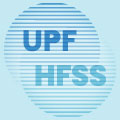A new Series published in The Lancet, coauthored by Barry Popkin, W.R. Kenan Jr. Distinguished Professor of nutrition at the UNC Gillings Global School of Public Health and founder of the Global Food Research Program at UNC-Chapel Hill, warns that the rapid rise in ultra-processed food (UPF) consumption is undermining diet quality and health globally. The three-paper Series brings together 43 international experts to examine the evidence and policy actions needed to curb UPFs. Popkin serves as corresponding author of the Series’ second paper outlining coordinated policy strategies to reduce UPF production, marketing and consumption worldwide.
What are ultra-processed foods?
UPFs are industrially formulated products made from inexpensive ingredients such as hydrogenated oils, protein isolates, glucose–fructose syrup, and cosmetic additives. As defined by the Nova food classification system, and further elaborated in paper two for policymakers, UPFs are designed and marketed to replace real food and freshly prepared meals, maximizing convenience and corporate profit while displacing traditional dietary patterns. Since the concept was introduced by Series leader Carlos Monteiro, emeritus professor of nutrition and public health at the University of São Paulo, Brazil, and head of the Center for Epidemiological Studies in Health and Nutrition in 2009, hundreds of studies have linked higher UPF intake to poorer diet quality and increased risk of chronic diseases.

The evidence: a major global health challenge
The share of UPFs in household food purchases or daily intake has risen sharply worldwide, climbing from 24% to 55% in Canada across eight decades; from 11% to 32%, 13% to 33% and 4% to 10% in Spain, South Korea and China over three decades; and from 10% to 23% in Mexico and Brazil over four decades.
Meta-analyses conducted for the Series identified links between UPF consumption and at least 12 health conditions, including obesity, type 2 diabetes, heart disease, gastrointestinal disorders, and premature death. Large cohort studies, national dietary surveys, and randomized controlled trials consistently demonstrate that UPF-heavy diets cause nutrient imbalances, promote overeating and weight gain, and reduce intake of health-protective compounds.
Popkin and colleagues stress that continued research is important but should not delay policy action. They conclude that governments must move beyond encouraging individual behavior change and instead adopt coordinated policies across food systems to limit UPF production and marketing while making nutritious foods more affordable and accessible.
“The growing consumption of ultra-processed foods is reshaping diets worldwide, displacing fresh and minimally processed foods and meals,” said Monteiro. “This change in what people eat is fueled by powerful global corporations who generate huge profits by prioritizing ultra-processed products, supported by extensive marketing and political lobbying that block effective public health policies to support healthy eating.”
The Series explains how UPFs are the product of a food economy driven by interest in corporate profit rather than nutrition or sustainability. Its authors warn that without regulation, industry influence will continue to shape global diets and public policy.

“Addressing this challenge requires governments to step up and introduce bold, coordinated policy action — from including markers of UPFs in front-of-package labels to restricting marketing and implementing taxes on these products to fund greater access to affordable, nutritious foods.”
— DR. BARRY POPKIN
Policy solutions: beyond individual behavior

The second paper in the Series, coauthored by Popkin, sets out a coordinated package of policy recommendations to reduce UPF consumption and hold manufacturers accountable. Popkin outlines a coordinated package of global policy measures including:
- Front-of-package labels that flag UPFs using ingredient markers such as colorants, sweeteners, and emulsifiers as well as excessive saturated fat, sugar and salt
- Bans on UPF sales in public institutions such as schools and hospitals
- Marketing restrictions, particularly for children and digital media
- Fiscal policies, including taxes on UPFs, to fund fresh-food subsidies for low-income households, affordable and convenient fresh options in supermarkets and fast-food restaurants, and potable drinking water infrastructure
- Limits on supermarket shelf space for UPFs
The authors note that some countries are already taking strong steps to limit UPFs through marketing bans, taxes and school-food policies. However, the United States has not advanced major UPF-related policies, with recent initiatives under the MAHA movement halted by industry pressure and federal reversals. This stands in contrast to nations such as Canada, Mexico and Brazil, which have implemented bold public health measures to reduce UPF consumption. Brazil’s national school feeding program, for example, has eliminated most UPFs and will require 90 percent of meals to be made from fresh or minimally processed foods by 2026.
“Improving diets worldwide requires policies tailored to each country’s unique situation and how entrenched UPFs have become in people’s daily eating habits,” said Popkin. “While priorities may differ, urgent action is needed everywhere to regulate ultra-processed foods alongside existing efforts to reduce high fat, salt and sugar content.”
Confronting corporate influence
The Series also highlights the widening gap between the profits of large food manufacturers and the health of the public. UPF companies account for more than half of the $2.9 trillion in shareholder payouts made by publicly listed food corporations since 1962, profits that fuel corporate influence and resistance to reform. The authors call for re-envisioning global food systems to support local producers, preserve cultural food traditions and ensure economic benefits flow back to communities rather than shareholders.
A path forward
The authors emphasize that the goal is not only to limit harmful products but to rebuild food systems that support local producers, preserve cultural food traditions, and ensure that economic benefits flow back into communities rather than shareholders.
As Phillip Baker, Australian Research Council Future Fellow and Horizon Fellow at the University of Sydney School of Public Health, notes: “We are currently living in a world where our food options are increasingly dominated by UPFs, contributing to rising global levels of obesity, diabetes and mental health issues. Our Series highlights that a different path is possible — one where governments regulate effectively, communities mobilize and healthier diets are accessible and affordable for all.”
Key Messages
- Evidence shows UPFs are displacing long-established dietary patterns, worsening diet quality, and are associated with an increased risk of multiple chronic diseases.
- Improving diets cannot rely on consumer behavior change alone — it also requires coordinated policies across food systems that legislate reductions in UPF production, marketing, and consumption.
- Only a coordinated global response can combat UPF companies’ political playbook — the largest barrier to implementing effective policies to reduce UPF consumption.
The Series was funded by Bloomberg Philanthropies.
Read the full Series in The Lancet
Learn more about ultra-processed foods and the Nova classification system in our fact sheet:
MORE GFRP RESEARCH ON ULTRA-PROCESSED FOODS

New study charts policy path to identifying ultra-processed foods and beverages high in nutrients of concern
Read more…

Ultra-processed products make up nearly half of low-income South African adults’ diets
Read more…

